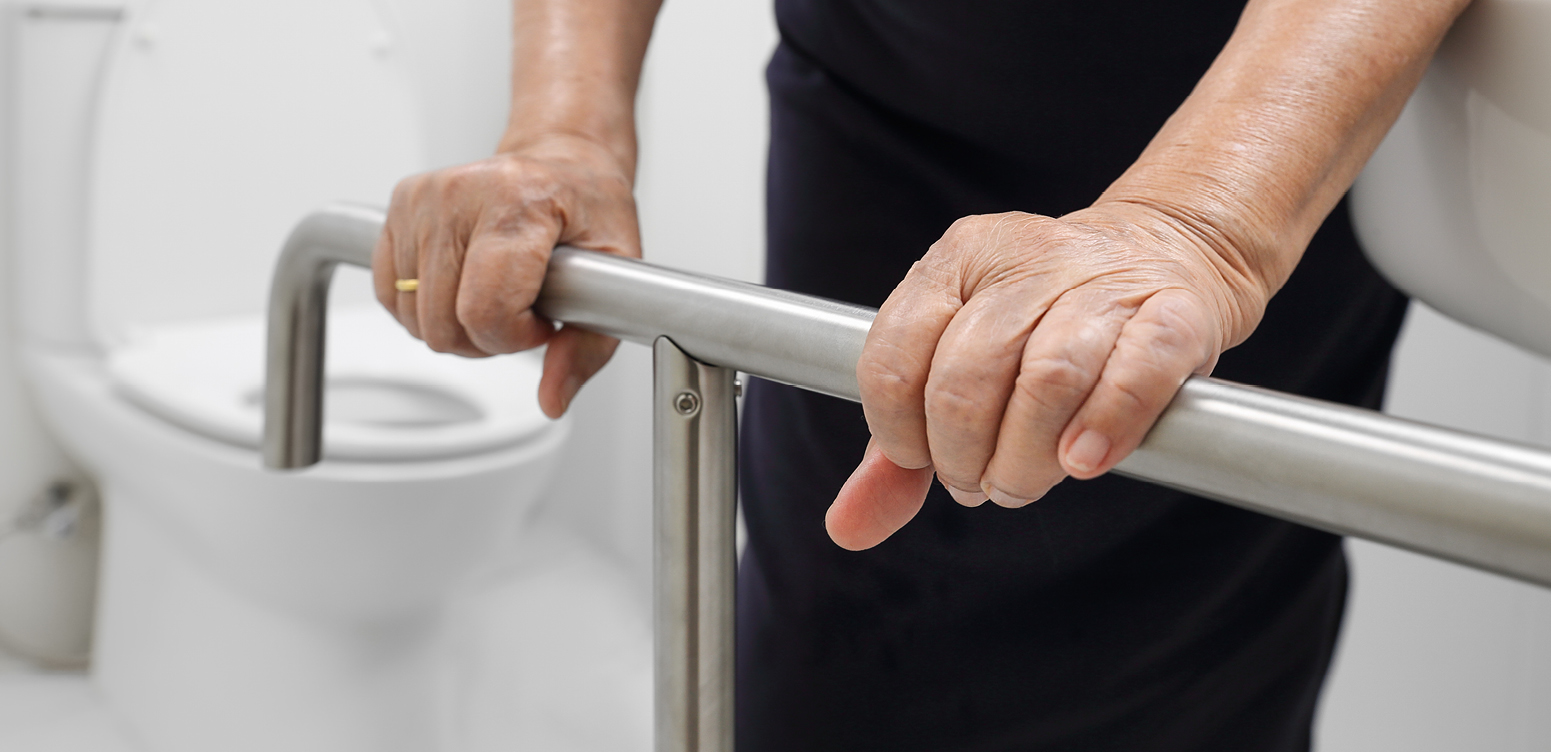Professor Vikki McCall to lead on research to improve provision of aids and adaptations

A group of housing bodies have commissioned research to identify what is needed in Scotland in terms of funding, systems and support to provide aids and adaptations to older and disabled people.
Aids and adaptations are installations which allow people to live better in their homes: this can involve everything from grabrails and stairlifts to walk-in showers and wet rooms.
The research, which has been commissioned by the Scottish Federation of Housing Associations (SFHA), the Chartered Institute of Housing (CIH) and the Association of Local Authority Chief Housing Officers (ALACHO), will be led by Professor Vikki McCall, professor of social policy at the University of Stirling.
Researchers from the Intersectional Stigma of Place-based Aging (IPSA) project will look at the current and future demand for aids and adaptations and reforms needed to support people to continue to live as independently as they can in their own homes, including when they return following a stay in hospital.
Adaptations can be life-changing for an older or disabled person, and for their family members or carers. As well as supporting independent living and allowing residents to age well at home and in the community, adaptations also prevent falls and injuries which reduces overall hospital admissions.
However, getting the right adaptation can be unnecessarily difficult, piecemeal, underfunded and slow to implement. Too often this complexity hinders the very purpose of adaptations: timely work to enable and sustain independent living, maintain and improve quality of life, and prevent the need for more costly interventions.
The findings of the research are expected this summer and will inform discussions with political parties ahead of the 2026 Scottish Parliamentary elections.
Those who have commissioned the research believe it will show the funding and reforms needed to support person-centred provision of aids and adaptations into the future amid an ageing population.
Sally Thomas, SFHA chief executive, said: “Housing associations are at the forefront of providing appropriate and timely adaptations - from grab rails to large scale adaptations such as extensions for wet-rooms.
“Yet our members constantly tell us that the current policy and funding systems are complex and place too much emphasis on the type of housing, rather than the needs of older and disabled people.
“Following the hugely concerning announcement by the UK Government of drastic cuts to the social security budget, this research is vital to find out the funding, systems and support needed to meet these needs.”
Ashley Campbell, policy and practice manager at CIH Scotland, said: “Our population is ageing, and we need to make sure that our homes and services are keeping up with people’s changing needs. We know that demand for aids and adaptations in the social housing sector far exceeds the available budget, but issues with funding and complex delivery systems extend across the housing sector to private tenants and homeowners as well.
“This research will add to a growing body of evidence on adaptations and independent living, and we hope it will help to shape a way forward that will support people to live in comfort and dignity, regardless of their housing tenure.”
Tony Cain, policy manager at ALACHO, said: “Accessible housing underpins the dignity and quality of life for older people and everyone with a disability. This study will add to the body of evidence of how far we fall short on meeting the right to adequate housing. Hopefully it will also provide a platform for a step change in how well we meet these needs for both tenants and owners.”
Professor McCall said: “We have seen in our research that inclusive, accessible and flexible design goes a long way to tackle stigma in relation to ageing, disability and place.
“This research highlights the importance of adaptations for older and/or disabled people in helping with the day-to-day activities that everyone takes for granted – eating, sleeping, bathing and moving about in your home safely. We simply need more support in terms of improving our homes for healthy ageing and future-proofing our current housing stock.”









